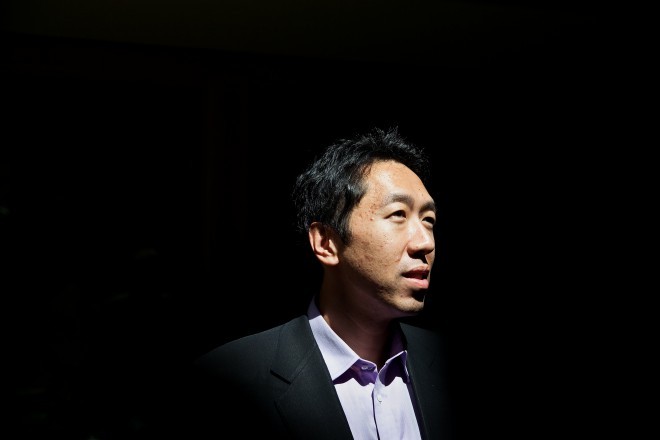 EMERGING TECH
EMERGING TECH
 EMERGING TECH
EMERGING TECH
 EMERGING TECH
EMERGING TECH
Andrew Ng, the onetime co-creator of the Google Brain research project who joined Baidu Inc. as its chief scientist in 2014, today said he’s leaving the Chinese tech giant to pursue his own work in artificial intelligence beyond the tech industry.
“Baidu’s AI is incredibly strong, and the team is stacked up and down with talent; I am confident AI at Baidu will continue to flourish,” Ng wrote in a Medium post. “After Baidu, I am excited to continue working toward the AI transformation of our society and the use of AI to make life better for everyone.”
Ng was one of the pioneers in the flowering of deep learning, a branch of machine learning that attempt to emulate in a primitive way how the brain works. His research at Google Inc. and Baidu has led to big advances in speech and image recognition, helping makes services such as Google and Baidu voice search far more accurate and useful and making self-driving cars a near-term possibility much sooner than expected.
Although Ng wasn’t specific about what he will do next, he has spoken often in the past year about non-technical issues involving AI, such as the need to foster societal changes to accommodate the technology. For instance, he told SiliconANGLE last year that AI could lead to much faster job loss than previous technology-driven changes, and that governments may need to consider massive retraining programs and even guaranteed incomes to ameliorate the disruption.
“There is a high chance that AI will create massive labor displacement, putting people out of jobs,” he said at a conference early last year. “It’s our responsibility to solve the problems.”
At the same time, he said in his post that there are both “rich opportunities for entrepreneurship as well as further AI research”:
I will continue my work to shepherd in this important societal change. In addition to transforming large companies to use AI, there are also rich opportunities for entrepreneurship as well as further AI research. I want all of us to have self-driving cars; conversational computers that we can talk to naturally; and healthcare robots that understand what ails us. The industrial revolution freed humanity from much repetitive physical drudgery; I now want AI to free humanity from repetitive mental drudgery, such as driving in traffic. This work cannot be done by any single company — it will be done by the global AI community of researchers and engineers. My Machine Learning MOOC on Coursera helped many people enter AI. In addition to working on AI myself, I will also explore new ways to support all of you in the global AI community, so that we can all work together to bring this AI-powered society to fruition.
Baidu said it will consolidate various research groups under a new leader, Haifeng Wang. In a statement, the company said those groups include the natural language processing, knowledge graph and big data groups and the Institute of Deep Learning, which will form an AI Group. Wang will report to Baidu Chief Operating Officer Qi Lu, which Ng hired after he left Microsoft Corp. last year.
In addition, Ng said, Yuanqing Lin, who had been director of Baidu’s Institute of Deep Learning in Beijing, one of Baidu’s three research labs, on March 8 was named head of Baidu Research overall. Lin, Ng wrote in the Medium post, is “a brilliant technology and business leader, who is creating both great AI technologies and great business results.” Ng led more than 1,300 researchers, engineers and support staff, including Baidu Research in China and a Silicon Valley AI research lab.
Still, Ng’s departure is a blow for Baidu, not least because he helped hire many other AI experts into the company, such as Adam Coates, Jing Kun, Li Ping, Xu Wei and Zhu Kaihua. He helped put Baidu on the international map as a leader in AI and deep learning. He will leave at the end of April.
Ng was also a leading researcher at Stanford University, heading its Artificial Intelligence Lab. In addition, he co-founded the online education startup Coursera Inc. with Daphne Koller.
THANK YOU